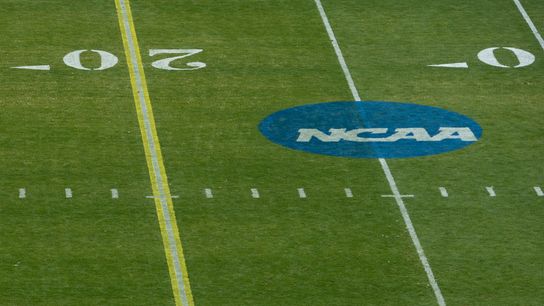At long last, the NCAA is set to formally grant all Division I athletes the right to transfer once without penalty, according to The Athletic.
The change will be approved by the Division I Council, a 40-odd member group comprised of athletics personnel -- primarily ADs and conference commissioners.
There have long been calls for the NCAA to grant all athletes a 1-time waiver, beginning was back when the organization granted graduate students the ability to transfer and play immediately way back in 2006, but the NCAA itself has been working on this legislation for more than a year.
“The current system is unsustainable. Working group members believe it’s time to bring our transfer rules more in line with today’s college landscape,” D1 Council vice chairman and transfer working group chairman Jon Steinbrecher, commissioner of the MAC, said last February. “This concept provides a uniform approach that is understandable, predictable and objective. Most importantly, it benefits students.”
Signaling the change, just last week Steinbrecher's own conference dropped its rule mandating all MAC-to-MAC transfers lose a year of eligibility. The ACC dropped its rule last month, and the American did so on Tuesday.
The NCAA rule would not wipe out any existing intra-conference rules. That means Oklahoma could still prevent Chandler Morris from playing immediately at TCU, for example, unless the Big 12 drops its rule.
But the passage of a nationwide rule could increase the pressure on holdout conferences to drop their rules, such as the Big 12. (Update: The Big 12 has indeed changed its rule.)
Presently, athletes in all D1 sports except five -- most notably football and men's basketball -- can already transfer without penalty. The NCAA has attempted in recent years to make it easier on athletes to transfer without removing the year-in-residence rule -- most notably by preventing coaches from preventing athletes to transfer to a school of their choice and by establishing a hardship waiver to account for special circumstances. But that system often devolved into whether or not an athlete's family had the money to hire the right attorneys, leaving plenty of people on both sides of the table frustrated with the system.
Which is why the NCAA is set to scrap the rule altogether.
In conjunction with the vote to end the year-in-residence rule, the D1 Council will also vote to establish a notification date that would set a deadline for athletes to notify their current school of their intent to transfer. For football players, that date would be May 1.
When passed, the rule is expected to go into effect immediately, so there could be a rush of new transfer portal entries over the last half of this month.
As always, stay tuned to The Scoop for the latest.
Update: The vote has been approved and the rule has passed, according to The Athletic. Expect a formal announcement from the NCAA on Thursday.
